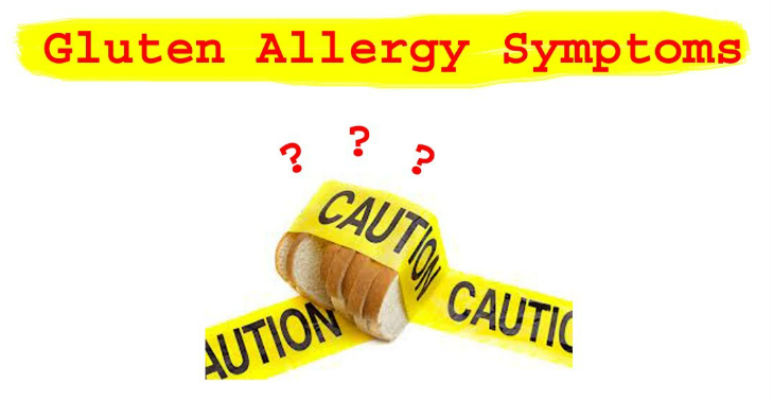Although the number of people who are following a gluten-free diet has been rapidly increasing in the last few years, it seems that many people have no clue that they are allergic to gluten. Certain mild gluten allergy symptoms cannot be diagnosed easily.
Of course, there are many different signs of gluten allergy, but most of them are mistaken and misinterpreted as signs of some other illnesses and allergies. This is the reason why it is a good idea to learn more about these signs and stop eating gluten.
If you identify only one of them, you should reduce the intake of food products that contain gluten.
Stop Eating Gluten
(10 Allergy Signs You Are Not Aware of)
1. Frequent headaches
People who are sensitive to gluten often experience mild headaches and some of them experience even severe migraines. In case you are experiencing frequent headaches and these headaches occur after you had a meal that includes gluten, you should perform an investigation.
2. Improper digestion
One of the most common symptoms of gluten allergy is having problems with digestion – stomach pain, frequent gases, bloating, irritable bowel, etc. The reason is simple – your body cannot process the gluten in the right way.
3. Constant fatigue
In case you feel tired even if you were inactive for a longer period, gluten intolerance might be the reason behind that. Of course, fatigue is caused by many different illnesses and diseases, but it is a good idea to do some research.
4. Pain in the joints
If you experience pain in the joints regularly, then you should check your diet because gluten allergy leads to swelling and inflammation.
5. Confusion
People who are dealing with gluten sensitivity often feel confused, disoriented, dizzy, and have problems focusing. This is certainly something that we want to avoid in these modern times.
6. Moodiness
People who have to deal with gluten intolerance have greater chances of developing anxiety, and depression and they are experiencing mood swings too.
7. Weaker immune system
If you tend to get sick more than usual, your gluten intolerance might be the main reason for that. In these cases, gluten is affecting the proper functioning of the immune system.
8. Hormonal imbalance
Gluten intolerance can significantly affect the work of the hormones and their production. Estrogen is the hormone that is usually most affected which results in irregular menstrual cycles, weight gain, and hot flashes.
9. Tooth decay
Gluten sensitivity can lead to tooth decay because it weakens the tooth’s health and results in enamel problems and canker sores.
10. Skin problems
Psoriasis, eczema, and keratosis pilaris are some of the frequent signs of gluten allergy. Bumps, rashes and itchy red skin can occur in any place of the body although most people notice these skin problems on their faces, arms, and thighs.
What to do in case you notice these symptoms?
If you notice any of the aforementioned symptoms or several symptoms, you should consult your doctor about taking a test for celiac disease. It is good to point out that even if the test is not positive, there is still a chance that you have gluten allergy because there is non-celiac gluten sensitivity too.
To determine your sensitivity, you will need to start practicing a gluten-free diet and check whether your condition is improving or not.
Remember that it takes time to clear the system from the presence of gluten, but in case you have a gluten allergy you should probably feel the first results in a couple of days.

